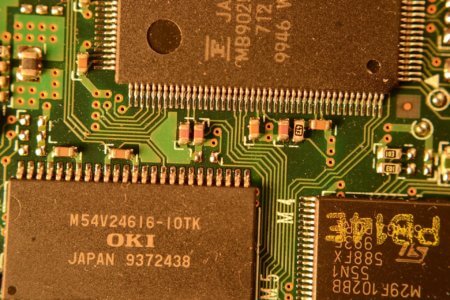The National Science Foundation (NSF), through its Divisions of Electrical, Communications and Cyber Systems (ECCS), Computing and Communication Foundations (CCF), Molecular and Cellular Biosciences (MCB), and Materials Research (DMR) announces a follow-up solicitation on the Semiconductor Synthetic Biology for Information Storage and Retrieval Program (SemiSynBio-II).
Future ultra-low energy storage-based computing systems can be built on principles derived from organic systems that are at the intersection of physics, chemistry, biology, computer science and engineering. Next-generation information storage technologies can be envisioned that are driven by biological principles and use biomaterials in the fabrication of devices and systems that can store data for more than 100 years with storage capacity 1,000 times more than current storage technologies. Such a research effort can have a significant impact on the future of information storage and retrieval technologies.
This focused solicitation seeks high-risk/high-return interdisciplinary research on novel concepts and enabling technologies that will address the fundamental scientific issues and technological challenges associated with the underpinnings of synthetic biology integrated with semiconductor technology. This research will foster interactions among various disciplines including biology, physics, chemistry, materials science, computer science and engineering that will enable in heretofore unanticipated breakthroughs.
Outline
Currently, semiconductor-based information technologies are facing many challenges as Complementary Metal-Oxide- Semiconductor (CMOS)/Moore’s Law approaches its physical limits, with no obvious replacement technologies in sight. Several recent breakthroughs in synthetic biology have demonstrated the suitability of biomolecules as carriers of stored digital data for memory applications. At the same time, the semiconductor industry has accumulated unique tools and expertise in design and fabrication of complex hybrid systems, which incorporate unconventional materials, to meet future information storage needs.
Understanding the principles of information processing and communication in living cells could enable new generations of storage and retrieval techniques. The most promising characteristic of biological systems is in their extremely low-energy operation, which is close to thermodynamic limits. Another attractive feature of biological circuits is their physical size. Although the progress of silicon technology has been extraordinary, sub-microscopic computing devices remains elusive. Nature appears to have successfully addressed the sub-microscopic design challenge and offers new solutions for future nanosystems for information processing.
Semiconductor Synthetic Biology for Information Storage and Retrieval Technologies (SemiSynBio-II) seeks to further explore and exploit synergies between synthetic biology and semiconductor technology. The integration of these two fields is likely to lead to a new technological boom for information processing and storage. The goal of the SemiSynBio-II research program will be to foster exploratory, multi-disciplinary, longer-term basic research leading to novel high-payoff solutions for the information-storage industry based on recent progress in synthetic biology and the know-how of the semiconductor technology. It is also anticipated that fundamental research in synthetic biology will benefit by leveraging semiconductor capabilities in design and fabrication of hybrid and complex biomaterial systems for extensive applications, including biological information-processing technologies and personalized medicine.
The community is ready to address the topic as a growing number of physicists, chemists, mathematicians, material scientists, computer scientists and engineers are turning to apply their expertise to synthetic biology, hybrid living cell-microelectronics systems, and cell-inspired and cell-based physical and computational systems. This new direction complements the growing use of semiconductor microfabrication technologies in synthetic biology. Indicators of success will be a demonstration of a new generation of prototypical highly robust and scalable bio-storage systems inspired by mixed-signal electronic design for future computing applications.
